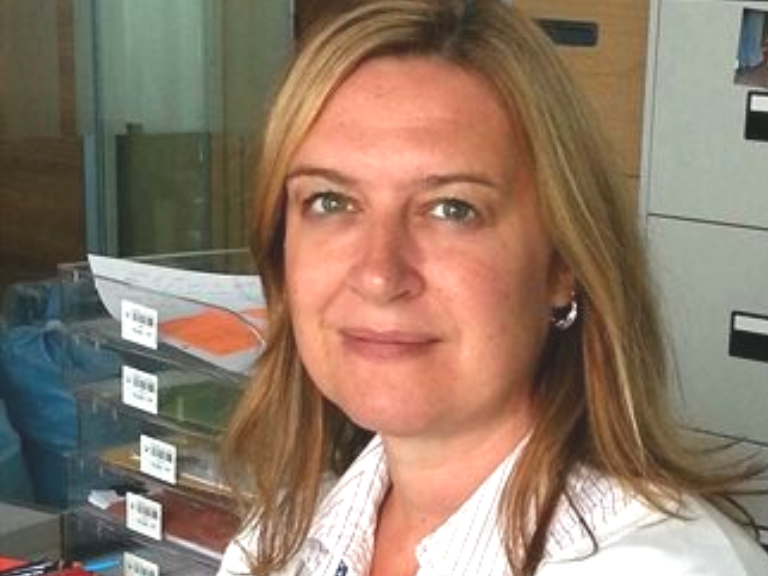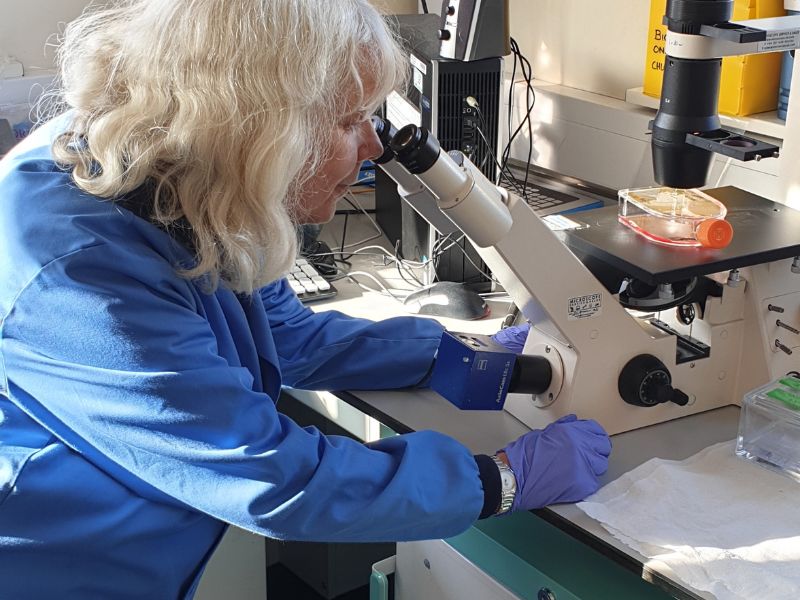SCF to Fund Research Into The Effects Of Stress on Tumour Recurrence

The Sussex Cancer Fund is delighted to have awarded Dr Melanie Flint together with Ms. Sonali Kaushik, Consultant Gynaecologist and subspecialist in Gynaecological Oncology and their team £139k over the next three years to look at “The impact of psychological stress on cancer burden and recurrence of tubovarian cancer and primary peritoneal cancers.”
Dr Melanie Flint – cancer and stress
Dr Flint started her career with a PhD in Biochemical Toxicology from Imperial College, before working for 5 years in West Virginia at the Centre for Disease Control, working on the effects of stress on the immune system and in particular on skin conditions. Unfortunately, at the same time, a close family friend died after battling Metastatic Breast Cancer, this inspired Melanie to apply the knowledge she had gained to cancer.
Dr Melanie Flint has since been focused on investigating the effects of stress on cancer progression, cancer immunology and on the efficacy of cancer drugs. Her work has lead to being nominated as a ‘Rising Stars’ awardee at the University of Brighton.
Dr Flint’s work is essentially concerned with the understanding of the underlying molecular mechanisms of how stress hormones act on the cells in the body.
Collaborating with colleagues at Brighton, SHORE-C, and Sussex University Hospitals NHS Foundation Trust, this globally respected group of academics are investigating the role of cortisol in determining tumour recurrence. This vital information will enable cancer clinicians to create bespoke treatments for all cancer patients moving forward; impacting on the efficacy of cancer treatment.

Dr Melanie Flint “Our goal is to highlight the importance of reducing stress during cancer treatments to improve patient outcomes.”
Dr Flint is also interested in how stress hormones can induce DNA damage to negatively impact drug treatments. One probable mechanism of DNA damage is the production of Reactive Oxygen and Nitrogen Species.
How this Research will help Patients
The team are carrying out experiments on a molecular level which will mean they are taking cancer/tumour cell samples and growing them in a lab and then observing their behaviour when subjected to stress chemicals such as cortisol which is naturally produced by the body. While there is already some evidence that stress can play a part in the recurrence of some cancers it has mainly been done through the application of psychological patient questionnaires. So we know that stress does play a part in metastasis but we just don’t know exactly how. Dr Flint’s research differs because they are looking at actual physiological changes in cells on a molecular level alongside psychological questionnaires.
They will be looking at organoid tumours in the lab and examining the effect of cortisol on immune/cancer cell co culture models. Once they have a better understanding of some of these changes, new treatment pathways can be developed for patients to prevent tumour recurrence. This may be through traditional stress-relieving methods such as exercise and mindfulness through to drug interventions where cortisol antagonists could be developed to stop the cortisol physically latching onto the stress receptors of cells.
Dr Flint will be assisted by Ms. Sonali Kaushik, Consultant Gynaecologist and subspecialist in Gynaecological Oncology & Clinical Lead, Valerie Jenkins, Deputy Director in Sussex Health Outcomes, Research & Education in Cancer (SHORE-C), Dr Sarah Baron and as well as other members of the research team.
We wish Melanie, Sonali and Team the best of luck with this project and look forward to hearing more updates on their work in the future. If you would like to support this or other cancer research projects you can do so by clicking on the donation button below.


